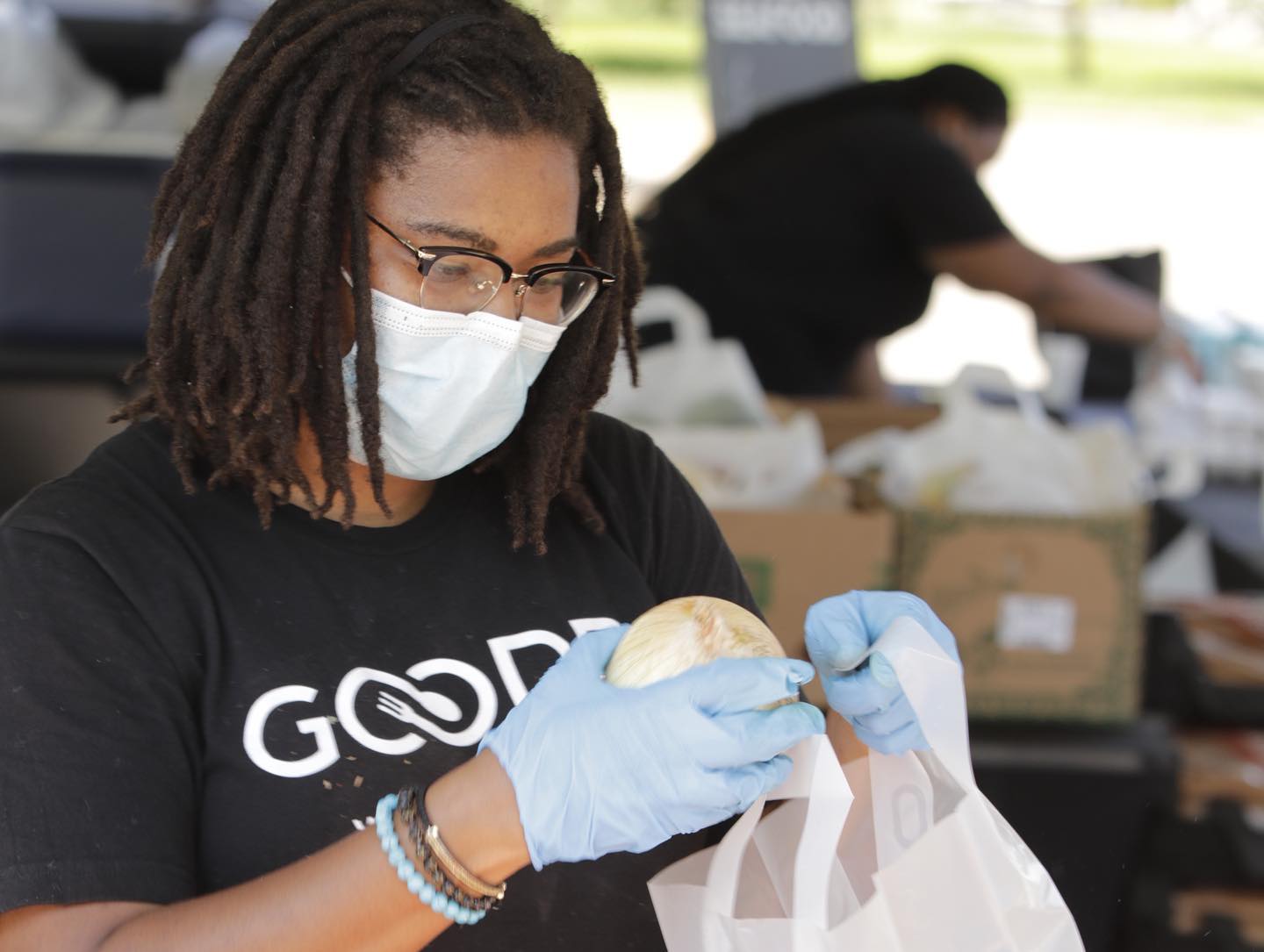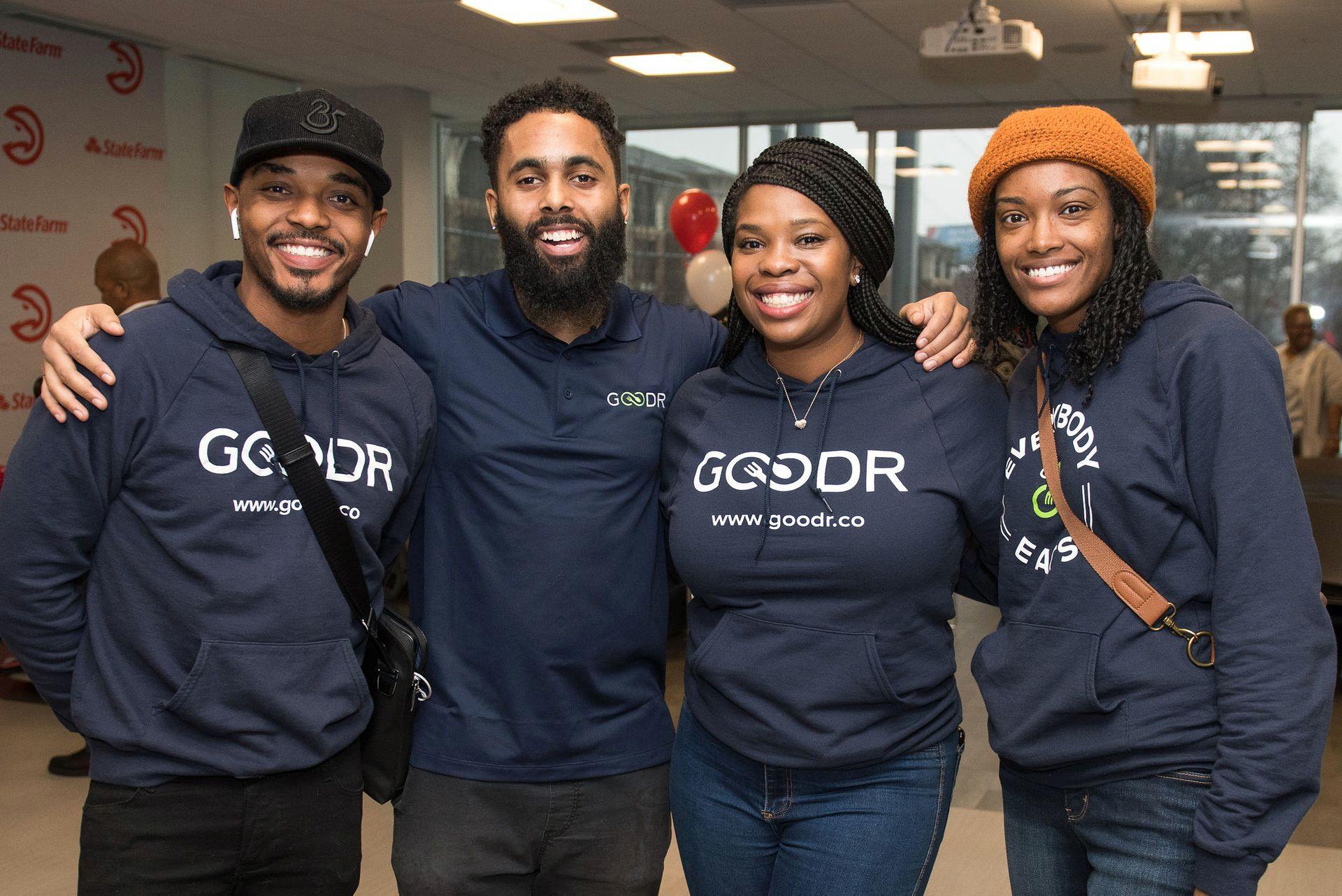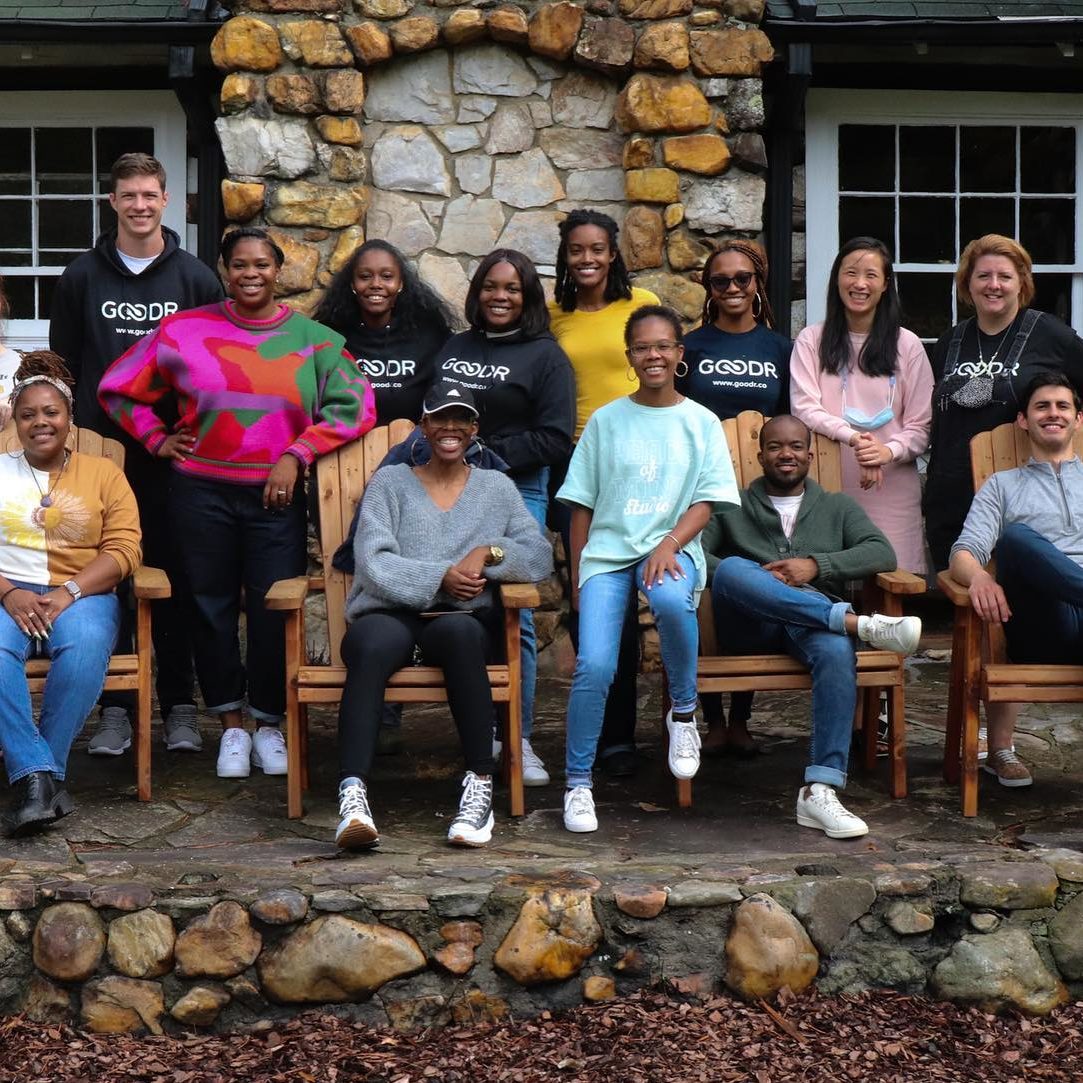Through its innovative app and free grocery pop-ups, Atlanta-based Goodr fights food insecurity and food waste across the country.
Have you ever gone to bed hungry, unsure of when you’ll be able to eat next? Or worried if you’ll have enough groceries to last the week? For a surprisingly large amount of the population, this is an everyday reality.
But in Atlanta, an emerging hub for novel technology, Black-, woman-owned venture Goodr is working to solve the complicated and pervasive issue of food insecurity. Their idea is simple — divert edible food from landfills and donate it to local nonprofits to help feed food-insecure Americans all over the country. In practice, it’s a bit more complex.
Global hunger affects 10 percent of the world’s population. In the U.S., that number is slightly higher. In 2020, 10.5 percent of households — or approximately 14 million people — across the country experienced food insecurity, many of whom live above the poverty line. The paradox is that we also have a serious food waste problem.
About 30 to 40 percent of our national food supply, or 133 billion pounds and $161 billion worth of food, is wasted each year. And much of it is perfectly good food that could be used to feed undernourished families. Instead, it’s lost to spoilage throughout the supply chain. Shoppers also play a major role when it comes to food waste. Fresh produce, meat, and fish that go unused end up in landfills, where it decomposes and produces the carbon and methane emissions that cause climate change. Globally, food waste accounts for eight percent of greenhouse gas emissions — that’s more than the aviation industry.

Read more: Why You Should Care About Massive Seafood Waste
Goodr and its partners are doing their part to address these issues. The company’s story begins with Jasmine Crowe, who has spent nearly a decade fighting hunger in Atlanta. Before the idea for Goodr crossed her mind, Crowe fed residents from her apartment kitchen, eventually turning the endeavor into what she called Sunday Soul, a white-tablecloth, restaurant experience for those experiencing hunger. Locals could make reservations and come eat, free of charge, no questions asked.
On her search to find cheap, quality food to fuel Sunday Soul, Crowe discovered just how much food was being wasted in her hometown and across the U.S. With the advent of food delivery apps like Grubhub and DoorDash, it occurred to her that the technology could be re-engineered to pick up surplus food that would otherwise end up in the trash.
In 2017, after a challenging path to opening, Crowe launched Goodr. Using a mobile app, local businesses like grocery stores and restaurants can request surplus food pick up in real-time, and even track their donations to view their sustainability impact. So far, Goodr has worked with dozens of clients in and outside of Atlanta, such as Agnes Scott College, a university located in Georgia, and Porsche car company in California. In Atlanta, the company has partnered with institutions like the Hartsfield-Jackson Atlanta Airport and convention space Georgia World Congress Center (GWCC) to get food into the hands of those that need it.
“Everything that we do really comes from an understanding that food insecurity is an issue of scarcity,” says Blake Engelhard, Head of Growth at Goodr. “It’s a matter of logistics.”

Read more: How Food Forests Help Solve Food Insecurity
In less than two years, the Hartsfield-Jackson Atlanta Airport, which is home to two dozen restaurants, has donated more than 150,000 meals to the local community — diverting more than 125,000 pounds of waste from landfills and preventing nearly 85,000 pounds of carbon dioxide emissions from entering the atmosphere, all thanks to its collaboration with Goodr.
“We’re projecting that 42 million Americans will go hungry in 2022, while 80 billion pounds of edible food, good food that could have fed many people, will end up in landfills. This crazy mismatch informs everything that we do — we’re trying to remove that logistics barrier to provide access to people in need.”
In another major milestone, GWCC, the fourth-largest convention center in the world, partnered with Goodr during the 2019 Super Bowl. Together, they were able to provide 42,000 meals to the community, while preventing almost 80,000 pounds of food from going to waste and eliminating 43,200 pounds of carbon dioxide emissions.
“We’re projecting that 42 million Americans will go hungry in 2022, while 80 billion pounds of edible food, good food that could have fed many people, will end up in landfills,” says Engelhard. “This crazy mismatch informs everything that we do — we’re trying to remove that logistics barrier to provide access to people in need.”
In many parts of the country, including Atlanta, some locals travel many miles to reach grocery stores with fresh, nutritious food. These food deserts leave millions of citizens without access to the healthy produce or meat that so many of us can easily purchase at neighborhood grocery stores and farmer’s markets. Today, 19 million people, or 6.2 percent of the national population, live in food deserts. In an effort to bridge this food equity gap, Goodr also teams up with businesses to create local pop-up grocery stores in metropolitan areas that are classified as food deserts.
“We strive to create pop-ups with the residents in mind. So, we’re really thinking, what does this community need? What’s culturally sensitive for this community?”
For example, in 2021, the Atlanta Hawks basketball team partnered with Goodr to implement 16 full-service pop-ups in food insecure communities across Atlanta. Residents could come by and pick up free grocery items like fresh produce, meat, and seafood, milk and non-dairy alternatives, bread, and shelf-stable items. As a result of the combined effort, Goodr and the Atlanta Hawks served 3,400 families.
“We strive to create pop-ups with the residents in mind. So, we’re really thinking, what does this community need? What’s culturally sensitive for this community?” says Engelhard. “If we’re serving a senior population, it’s going to look different than if we are serving families with young children. To be able to go into a food desert and serve high-quality products without price tags, with dignity — that is fantastic.”
If you don’t live in Atlanta, you can still address food insecurity in your community. Consider volunteering your time or donating surplus food to the local soup kitchens, homeless shelters, or food banks in your area. The Feeding America website is a great resource for finding food banks in your neighborhood. You can also do your part by addressing food waste in your own home. Explore innovative ways to reuse food scraps and compost those you can’t turn into something new. Together, we can end the global hunger crisis and curb climate change.
Read more: How to Compost in a Small Space
Have feedback on your store? Email [email protected] to let us know what you think!

Shop Pillows
The Essential Organic Pillow Collection
Gentle, breathable, non-toxic support.





